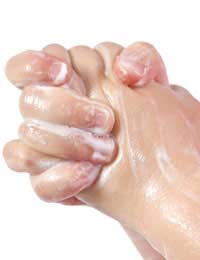Obsessive-compulsive Disorder

Obsessive Compulsive Disorder (OCD) is a mental health problem which affects a little more than 1% of the UK population. Those affected by OCD find themselves thinking the same thoughts over and over as well as doing the same things over and over. The thoughts are obsessions while the actions are compulsions. Knowing the signs of OCD, how it is diagnosed and treated, and where to find help are all important for understanding this disorder.
Signs of Obsessive Compulsive Disorder
The main signs of OCD have to do with what you think and do, but they also relate to why you are doing these things. For the most part OCD sufferers report feeling as though they must think or do certain things, even if they don’t want to and they know the need to think or do things isn’t based on fact or reality. Such obsessions and compulsions often include:- Wondering if or believing that something bad will happen to you or a loved one.
- Believing you will say something you don’t mean, or that will shock others.
- Fear of doing something sexually inappropriate, including assaulting someone.
- Constantly analysing or doubting personal relationships.
- Truly believing in superstitions or good luck charms.
- Violent thoughts about harming yourself or others.
- Needing to check things (locks, lights, appliances, etc) constantly.
- Needing to touch things (objects, particularly superstitious or religious) constantly.
- Endlessly counting things.
- Needing to organise/order objects, even in other people’s homes.
- Fear of germs and desire to clean (wash hands, bathe, wipe down furniture, etc) constantly.
- Fear of needing something so being unable to let items, even rubbish, go (hoarding).
Diagnosing Obsessive Compulsive Disorder
If you fear you or a loved one suffers from OCD the first step is to see your GP. After discussing why you believe you might suffer from OCD your GP may then refer you to a mental health specialist for an assessment. This specialist may be a psychiatrist, psychotherapist or counsellor. In order to diagnose OCD the specialist will determine if your symptoms match those which are recognised indicators of OCD.Treating Obsessive Compulsive Disorder
The National Institute for Health and Clinical Excellence (NICE) have produced a set of guidelines for the treatment and management of OCD. Typically there are four avenues of possible treatment. These include:- Self help, such as writing a journal, avoiding drugs and alcohol, relieving stress and support groups.
- Talking treatment, including individual or group counselling sessions.
- Medicine, often the same as those used to reduce anxiety or relieve depression.
- Hospitalisation, though usually only if OCD is present with another mental health issue.
Help With Obsessive Compulsive Disorder
In addition to the help a GP and mental health specialist can provide to those who suffer from OCD there are a number of groups and organisations also devoted to offering support. These include:- OCD-UK
- Anxiety Care
- Centre for Anxiety Disorders and Trauma
- No Panic
- First Steps to Freedom
- National Phobics Society
- Mind
- OCD Action
Obsessive Compulsive Disorder can greatly interfere with an individual’s quality of life. Recognising the signs of this mental health problem, how it is diagnosed and treated, and where you can find further support should help you better understand this complex disorder and what to do if you suspect yourself or a loved one suffers from it.


Re: Questionnaire: Am I Ready to Have Sex?
Helka poins milaser k112 teenissues.co.uk
Re: Coping With Strict Parents
I'm 14 and my parents are so strict they don't care that I am growing up and need to learn to be myself. Instead I go to bed at 7:30,…
Re: Coping With Strict Parents
Guys im 15 living with African parents ( Nigerian's to be precise) my dad took me and all my siblings mobile phone including my 19…
Re: Coping With Strict Parents
My mom , she always have rules in my life . I am 17 and this year gonna be 18 . My mom all the time taking my phone, checking my…
Re: Coping With Strict Parents
I'm already 17 and I'm in love to an 18yo girl with acute depression. When my parents found out, they are forcing me to stop all my…
Re: Coping with a Jealous Friend
The friends i keep are mostly male friends, because guys don't easily get jealous. My female friends always envy my life; for…
Re: Coping With Strict Parents
Yo guys, Im 10 and I just had an argument with my mom, now she won’t help me with my drawing homework and my other writing…
Re: Beauty Tips for Boys
.
Re: Coping With Strict Parents
So basically im 17 years old when i was 13 years i used to talk with a male who is 22 years! Because of my daddy issues ive gotten…
Re: Steroids
where i can buy